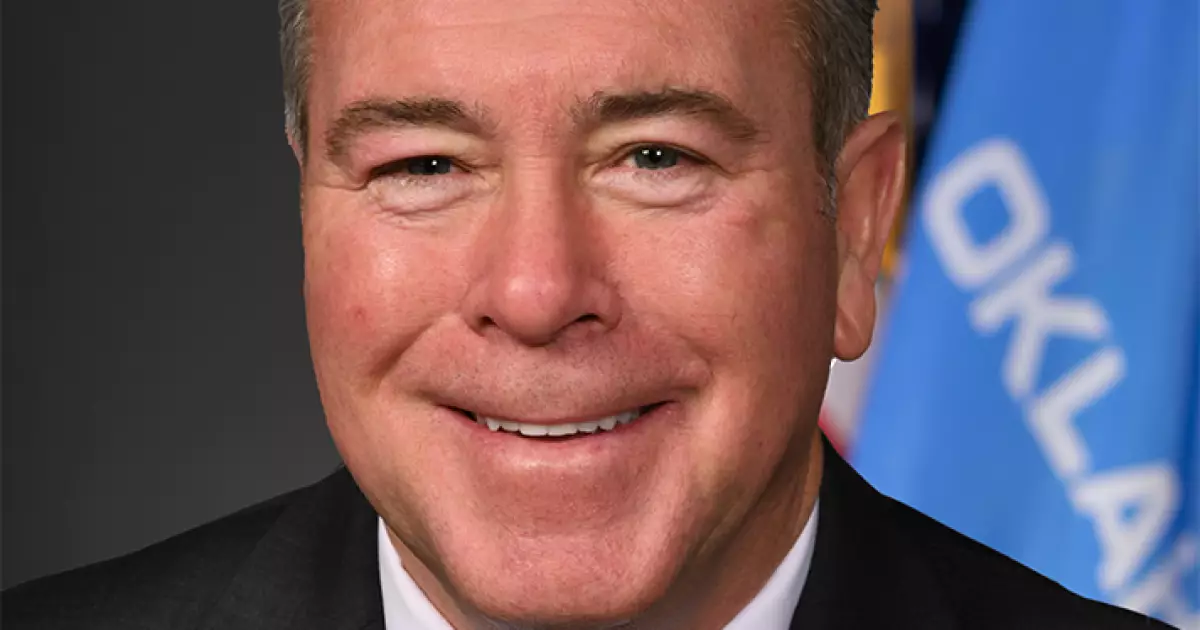The clash between Oklahoma’s Republican state treasurer, Todd Russ, and attorney general, Gentner Drummond, underscores a troubling trend within the political fabric of the state. Their feud—ignited over the defense of an anti-environmental regulation and social governance law—entails lessons far beyond the confines of the courtroom. The squabble reveals a deeper political malaise that portends a concerning future for both governance and economic stewardship in Oklahoma.
Constitutional Overreach Versus Accountability
At the heart of this conflict lies a fundamental issue of constitutional authority. Treasurers traditionally manage the state’s investments and oversee financial operations with a focus on transparency and ethical stewardship. However, Todd Russ’s allegations against Drummond reveal a perceived egregious breach of constitutional limits. By accusing Drummond of attempting to “centralize power,” Russ highlights a critical concern among politically centrist and right-leaning observers: a gap between accountability and authority is widening.
Drummond’s counterattacks frame him as a protector of Oklahoma’s interests, claiming that his actions aim to ensure compliance with local procurement processes. Yet, his very appeal to state sovereignty carries implications that could undermine the treasurer’s operational capacity and the autonomy encapsulated within separate offices. This dangerous dance between authority and accountability must prompt people to question: at what cost are we willing to condone such power grabs in our political landscape?
Investment Policies, or Political Manipulation?
The very nature of the Oklahoma Tobacco Settlement Endowment Trust’s investment strategy has found itself squarely in the crosshairs of this feud. The intervention by Drummond to alter investment documents in order to prevent litigation in New York reflects an inclination toward forceful decision-making. His assertiveness raises a poignant question—are these moves backed by genuine concern for Oklahoma’s prosperity or by a political agenda that caters solely to the interests of specific factions?
While Drummond’s intent appears to safeguard the fossil fuel industry from perceived discrimination, it’s essential to scrutinize the motives behind such policies. His unwillingness to initially defend the Energy Discrimination Elimination Act of 2022 raises eyebrows, especially considering his now-dominant position in appealing a ruling against the law. Federal and state regulations often reflect broader shifts in societal standards, and defensive posturing against them may signal a disconnection from the realities of a rapidly changing economic landscape.
The Influence of Money and Investments
The whispers around Drummond’s ties with BlackRock, particularly in light of his initial reluctance to defend anti-ESG (Environmental, Social, Governance) policies, reveal another level of complexity. The accusations exchanged suggest a nuanced theater where financial relations and political ambitions converge. If true, the implications of political figures prioritizing relationships with investment firms over constituents’ welfare can have dire consequences.
Russ’s claims may seem incendiary, but they touch upon a critical point: can Oklahomans trust their elected officials to prioritize the state’s welfare over personal or political gain? Given the stakes involved, this question cannot be taken lightly. Financial management should be pursued with vigilant transparency to preserve public trust, and the appearances of impropriety, intentional or not, threaten that trust.
Targeting Radical Agendas or Political Posturing?
Gentner Drummond’s rhetoric against “radical leftist agendas” serves a dual purpose: to rally voters while casting his rival in a light of deceit and incompetency. Such condemnations only deepen the divide in Oklahoma’s political climate, where the pursuit of ideological purity often supersedes effective governance.
By framing the confrontation as a war against an alleged comprehensive agenda, Drummond shifts focus from internal dissent to external enemies. This tactic may resonate with a base that feels marginalized by liberal ideologies; however, it also risks alienating moderates who advocate for a focused approach to managing resources rather than battling ideological foes.
In a political landscape increasingly energized by polarization, neither side emerges as a clear champion of thoughtful governance. The ongoing combat only stifles potential collaborative efforts crucial for Oklahoma’s future, adding insult to injury in an era that demands balanced and insightful leadership.

